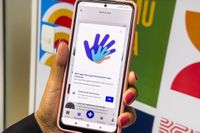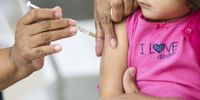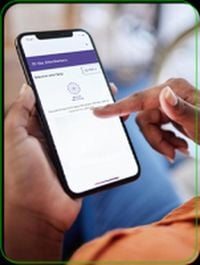The Brazilian Ministry of Health has launched a new digital child vaccination card, integrated into the Meu SUS Digital app, aimed at streamlining the management of children's health records. This innovative tool, unveiled on April 10, 2025, is designed to help parents and guardians keep track of their children's vaccinations, growth, and overall health more efficiently than ever before.
The digital Child Health Record allows families to monitor vaccination histories, receive reminders for upcoming doses, and access essential health information in real time. Minister of Health Alexandre Padilha emphasized the significance of this advancement, stating, "The situation where a parent arrives at a health unit or school and forgets the physical vaccination card is now resolved — it will be available in the app. The other advantage is that the digital card will have active messages, meaning it will send alerts to the responsible adult informing them that it's time to vaccinate or take a booster dose." This feature aims to eliminate the common issue of misplaced paper records, ensuring that health professionals can access critical information whenever necessary.
To utilize the digital Child Health Record, both the responsible adult and the child must have active accounts on the Gov.br platform, which is the federal government's digital service portal. After downloading the Meu SUS Digital app from the Apple Store or Google Play, users can register their personal information and the child's CPF (Cadastro de Pessoas Físicas), a Brazilian identification number. Once the data is linked, families can easily add new children to their account and manage their health records.
The app not only provides vaccination reminders but also includes a wealth of information about childhood care. It offers guidance on breastfeeding, healthy eating, accident prevention, and the conscious use of electronics. This educational content aims to support parents and guardians in fostering their children's well-being and development. The Family Care section of the app features interactive and educational materials that cover essential topics such as preventing violence and caring for premature babies.
The digital version of the Child Health Record does not replace the traditional paper card, which will continue to be issued at health centers. Instead, it serves as a supplementary tool that enhances accessibility and convenience for families. Health professionals can also access the digital record, allowing for a more integrated approach to child healthcare.
According to Ana Estela Haddad, the Secretary of Information and Digital Health, the digitalization of the Child Health Record marks a significant step forward for Brazilian families. She stated, "The child record has always been an ally for Brazilian families. Now, with the digital transformation of SUS, it becomes more modern, interactive, and accessible, supporting mothers, families, caregivers, teachers, and health professionals across the country in caring for our children."
This initiative is part of a broader effort by the Ministry of Health and Education to increase vaccination coverage among children up to 15 years old in Brazil. The campaign, known as Health at School (PSE), aims to boost immunization rates against diseases such as yellow fever, measles, mumps, rubella, diphtheria, tetanus, pertussis, meningococcal disease, and HPV.
The digital Child Health Record is a response to the increasing need for efficient health management tools in a digital age. By offering a user-friendly platform that centralizes vital health information, the Brazilian government hopes to empower families to take an active role in their children's health and ensure that no child misses essential vaccinations due to lost records or lack of information.
In summary, the launch of the digital Child Health Record within the Meu SUS Digital app represents a significant advancement in child healthcare in Brazil. By providing families with easy access to vaccination histories and health information, the initiative not only simplifies the management of children's health records but also promotes better health outcomes through increased awareness and timely vaccination.









